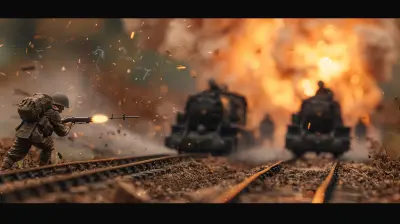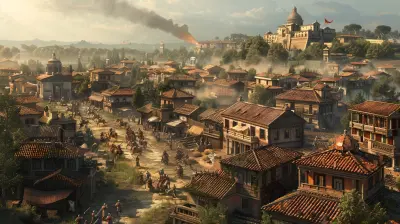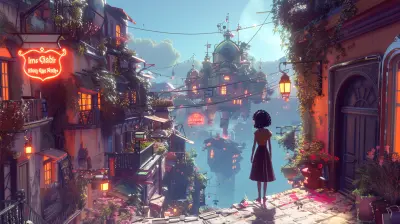The Evolution of Multiplayer Gaming: From LAN Parties to MMOs
25 July 2025
Ah, multiplayer gaming—where else can you find yourself battling dragons with strangers in Tokyo or fragging your best friend who's sitting just a few feet away, all while trash-talking over a headset? Multiplayer gaming has come a long, long way. If you’ve ever wondered how we went from dragging bulky PCs to a friend’s house for an all-night LAN party to seamlessly teaming up with 100 players in a massive online world, you’re in the right place. Let’s dive into the fascinating evolution of multiplayer gaming, shall we?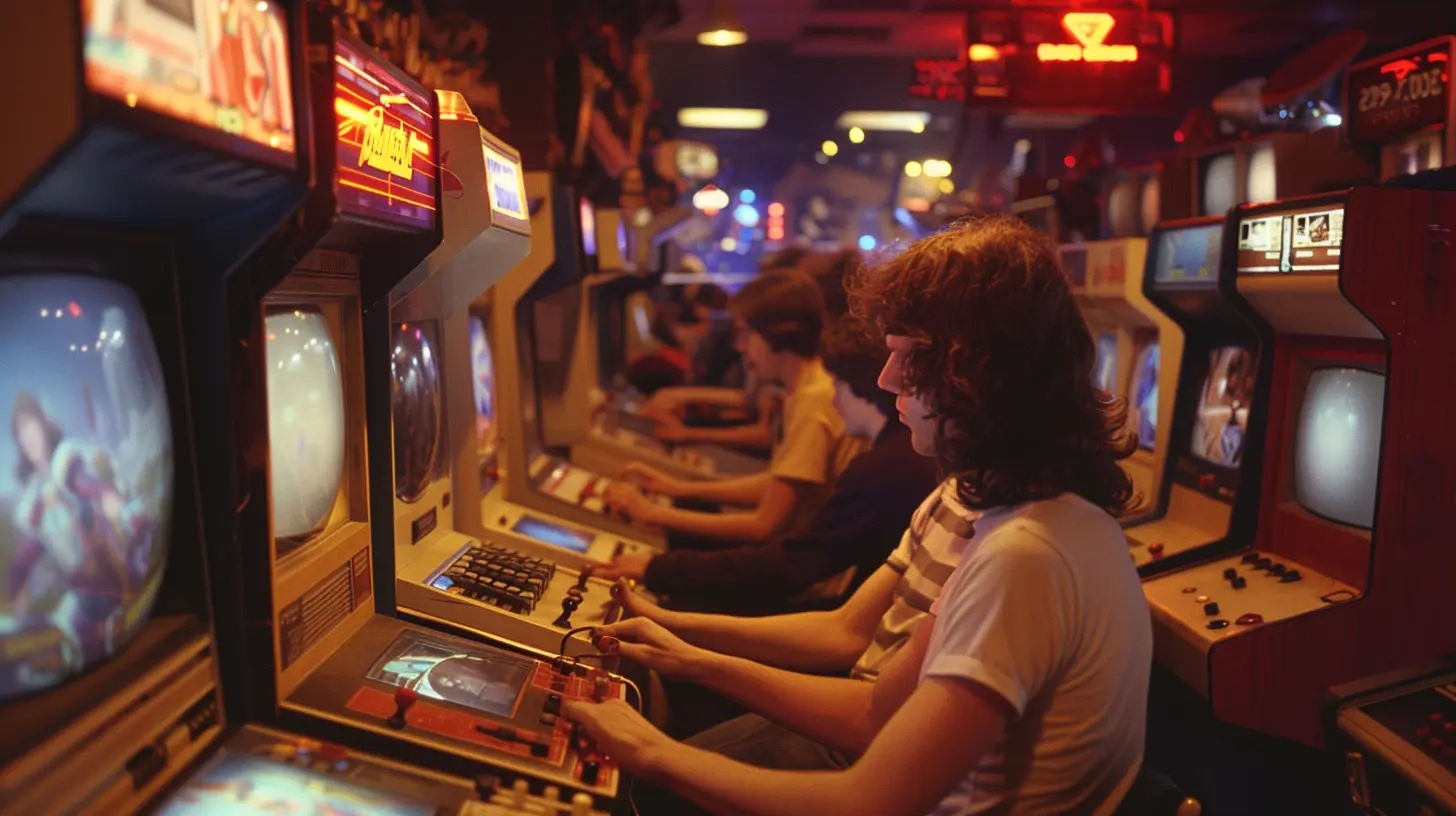
The Humble Beginnings: Couch Co-Op and the Joy of Local Multiplayer
Before we had the internet connecting gamers across the globe, our multiplayer experiences were pretty, well, intimate. Back in the day (we’re talking the ‘80s and early ‘90s), multiplayer gaming meant playing together on the same screen, often on the same couch.The Rise of the Couch Co-Op
Remember those chunky NES controllers? Games like Contra and Mario Kart brought friends and family together for some side-by-side action. There was something magical—almost nostalgic—about huddling together in front of a TV, arguing over who stole whose power-up or who failed to dodge a fireball. Sure, the graphics were pixelated, but the memories were high-resolution.Couch co-op gaming created bonds—whether that bond was high-fiving your teammate or passive-aggressively unplugging the controller of the person who kept "accidentally" shooting you. It was pure, unfiltered fun, and while it seems simple compared to today’s gaming, it laid the foundation for everything that followed.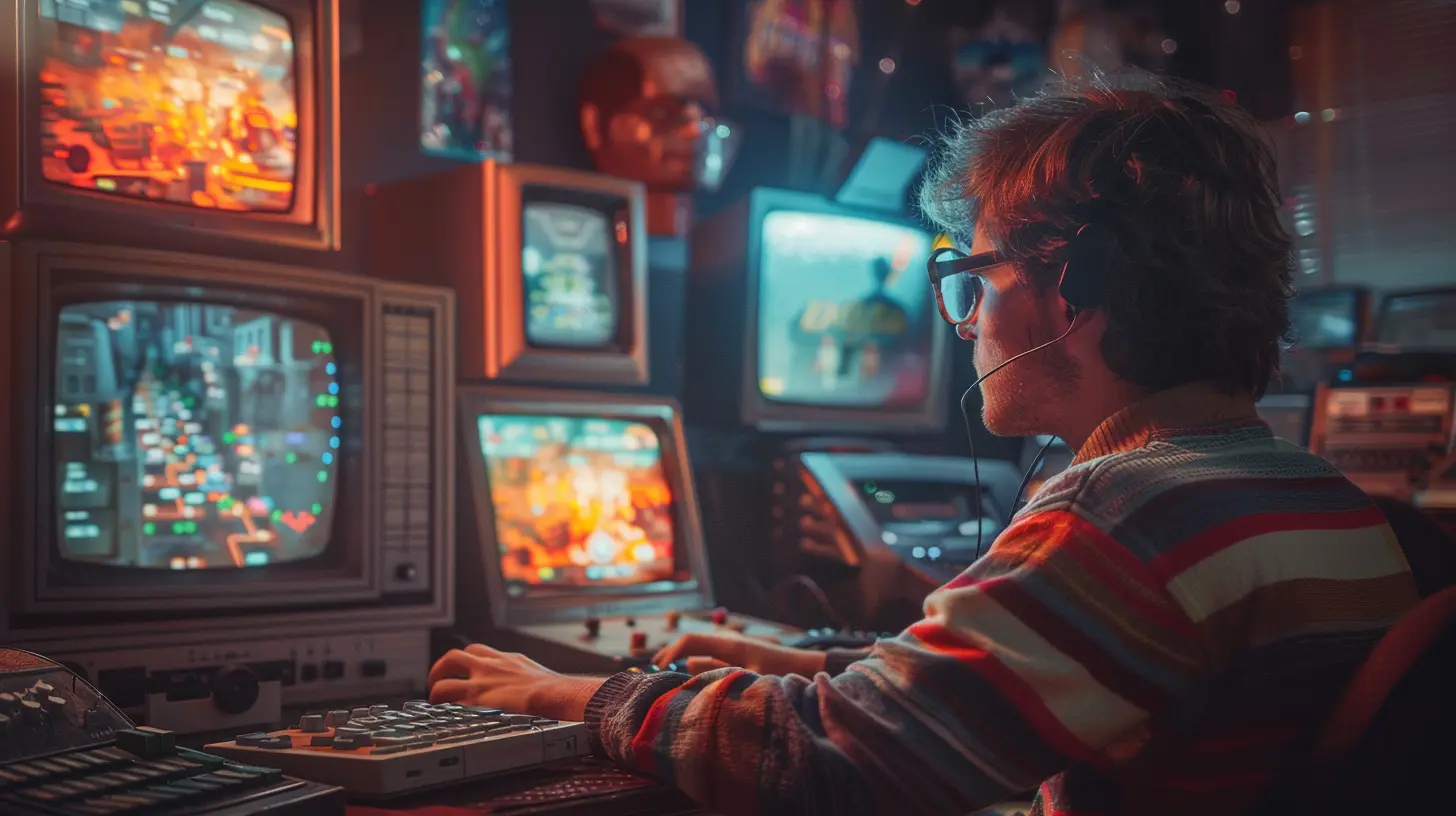
LAN Parties: When Gamers Took It to the Next Level
Ah, the golden era of LAN (Local Area Network) parties—when nerds ruled the night, and energy drinks fueled endless hours of gameplay. During the late ‘90s and early 2000s, multiplayer gaming went from sharing a screen to connecting multiple PCs in the same room. This was when multiplayer gaming stopped just being a hobby and started feeling like an event.Hauling PCs and Tangles of Wires
If you ever attended a LAN party, you know the struggle was real. First, you’d have to lug your massive desktop computer (and let’s not forget the monitor—those CRTs weren’t light, folks) to your buddy’s house. Then came the chaos of connecting via Ethernet cables, troubleshooting IP addresses, and making sure everyone was running the same version of the game—because someone always forgot to update.Despite the logistical nightmares, LAN parties were legendary. Titles like Counter-Strike, Warcraft III, and Quake were staples of these gatherings. There were no online servers to compete with randoms; it was just you, your friends, and hours of hilarity, competition, and camaraderie. It felt like your very own mini esports tournament, even if the only prize was bragging rights.
Why LAN Parties Mattered
LAN parties weren’t just about playing games; they were about community. They brought people together in ways that online multiplayer never fully replicated. Everyone was in the same room, sharing the same snacks, and yelling across tables when someone tried to camp. It was chaotic, sweaty, and utterly delightful.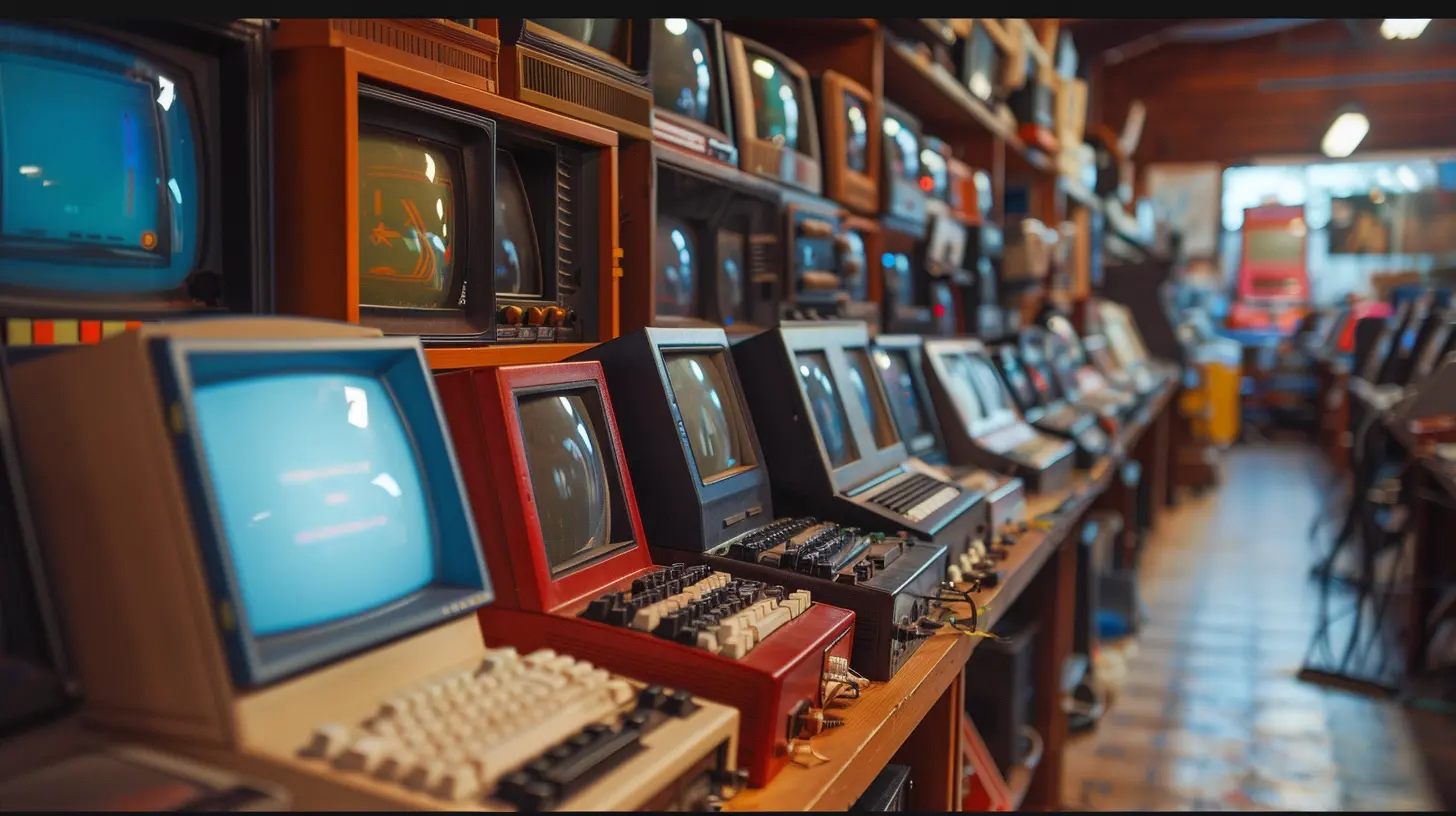
Broadband Revolution: The Age of Online Multiplayer
As internet speeds improved, LAN parties slowly started to lose their shine. Why haul your gaming rig to someone else’s house when you could just boot up your PC at home and connect online? The early 2000s marked a huge shift—online multiplayer gaming went mainstream.The Rise of Online Shooters: Halo 2 and Call of Duty
Games like Halo 2 on Xbox Live and Call of Duty 4: Modern Warfare redefined multiplayer gaming. No longer were you limited to playing with a handful of friends; now, you could face off against players from all over the world. Xbox Live was a game-changer, literally—it introduced matchmaking, voice chat, and online leaderboards, turning multiplayer into a competitive frontier.Sure, online multiplayer had its downsides. Lag and connection issues were painfully common in those early days, and trash-talking became an art form (for better or worse). But man, was it addictive. Every win felt like conquering the world, and every loss just made you want to queue up for one more match.
MMORPGs: When Worlds Became Massive
Then came the MMOs—Massively Multiplayer Online games—like World of Warcraft. These games took multiplayer to an entirely new level. Instead of small-scale matches, MMOs created living, breathing worlds filled with thousands of players. You weren’t just a soldier or a racer anymore; you could be a wizard, a knight, or even establish an entire in-game economy.MMOs weren’t just games—they were experiences. Players could form guilds, raid dungeons, and spend hours just fishing in a virtual pond. And the best part? The social aspect. MMOs blurred the line between gaming and socializing, turning strangers into friends (and sometimes even lifelong partners).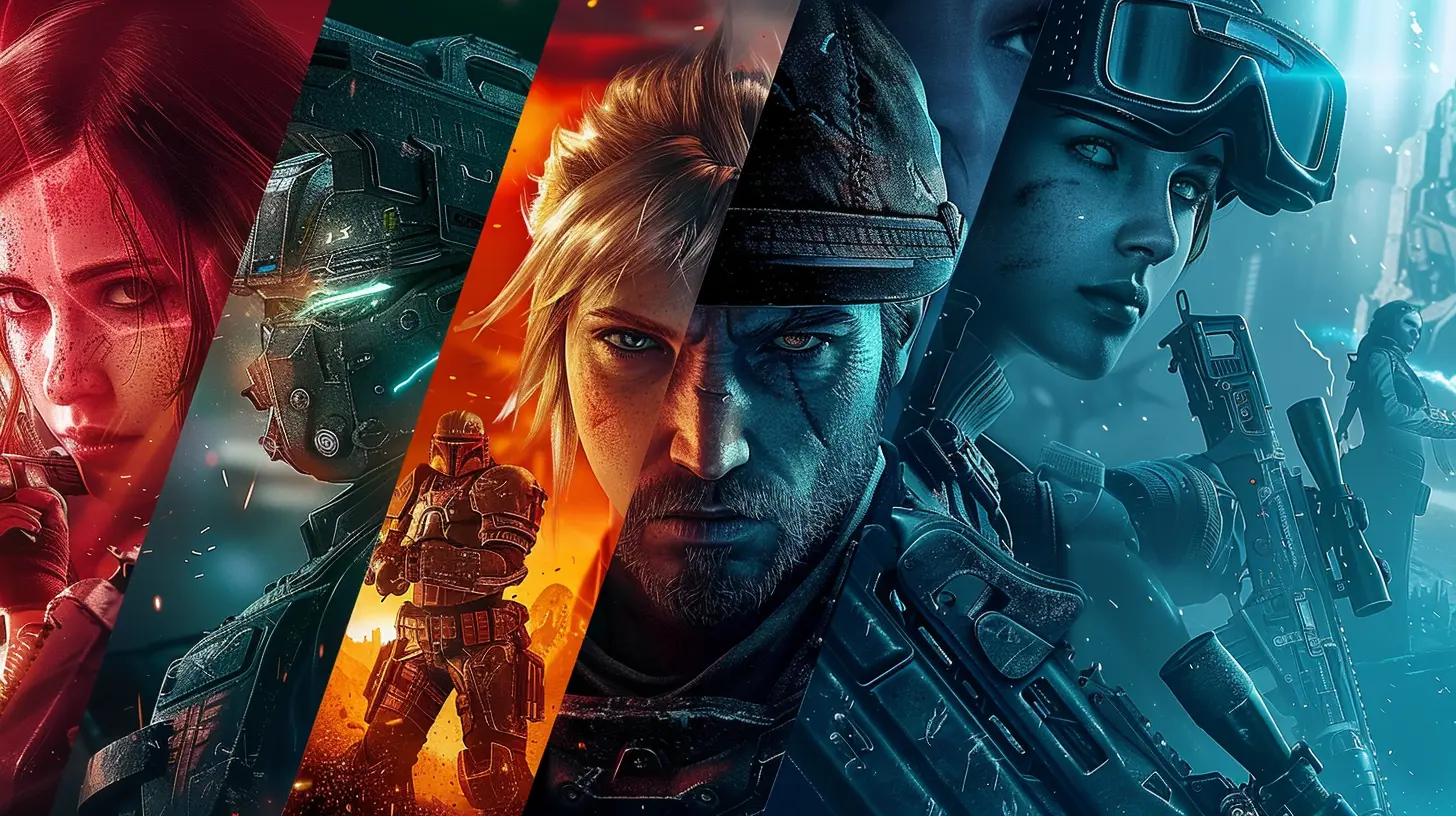
The Present Day: From Battle Royales to Cross-Platform Play
Fast-forward to today, and multiplayer gaming is more popular—and diverse—than ever. From battle royales to casual social games, there’s something for everyone. Oh, and let’s not forget the rise of mobile games. Who would’ve thought you’d one day be able to play multiplayer games with people on the other side of the world on your phone?Battle Royales: The New King of Multiplayer
If there’s one genre that has dominated the past few years, it’s battle royales. Games like Fortnite, PUBG, and Apex Legends have taken the gaming world by storm, offering massive free-for-all deathmatches that are both intense and ridiculously fun.Battle royales combine everything the multiplayer world has learned over the decades—large lobbies, strategic gameplay, and constant updates that keep things fresh. Plus, the thrill of being the last person standing? It’s hard to beat.
Cross-Platform Play: Breaking Down Barriers
Another recent innovation that’s worth celebrating is cross-platform play. Back in the day, if you had a PlayStation and your buddy had an Xbox, you were out of luck. But now? Thanks to games like Rocket League and Call of Duty: Warzone, gamers can play together regardless of their platform. Finally, no more console wars—well, sort of.The Future: What’s Next for Multiplayer Gaming?
So, where do we go from here? With advancements in technology like VR (Virtual Reality) and AI, the future of multiplayer gaming looks brighter than ever.Imagine putting on a VR headset and stepping into a fully immersive world where you can see, hear, and interact with other players like never before. Or picture AI-powered NPCs (non-playable characters) that are so smart, you might not even realize they’re not human. It sounds like sci-fi, but it’s closer than you think.
And let’s not forget the potential of the metaverse—a shared virtual space where gaming, socializing, and even working could all merge. Multiplayer gaming isn’t just evolving; it’s rewriting what it means to play, connect, and exist in a digital world.
Closing Thoughts
From the humble days of couch co-op to the sprawling worlds of MMOs, multiplayer gaming has come a long way. It’s incredible to think about how far we’ve come in just a few decades. But perhaps what makes multiplayer gaming so special isn’t just the technology—it’s the connections. Whether you’re arguing over who gets the last slice of pizza at a LAN party or coordinating a raid with your guild in World of Warcraft, multiplayer gaming is all about the people.And honestly? I can’t wait to see where the next level takes us.
all images in this post were generated using AI tools
Category:
Gaming HistoryAuthor:

Madeleine McCaffrey
Discussion
rate this article
2 comments
Alexander McAnally
What a fantastic exploration of multiplayer gaming's journey! It's incredible to see how far we've come from LAN parties to immersive MMOs. This evolution has transformed our social interactions and gaming experiences. Excited to see where it goes next! Keep up the great work!
November 15, 2025 at 3:38 AM

Madeleine McCaffrey
Thank you for your kind words! I'm glad you enjoyed the exploration of multiplayer gaming's evolution. It's an exciting journey, and I'm eager to see what the future holds as well!
Starla Beck
This article eloquently captures the transformative journey of multiplayer gaming. While it highlights the nostalgic charm of LAN parties, it should also address the social implications of online connectivity—how it fosters both community and alienation. Exploring these dualities would enrich our understanding of multiplayer's ongoing evolution.
July 25, 2025 at 3:18 PM

Madeleine McCaffrey
Thank you for your insightful comment! I appreciate your suggestion to explore the dualities of online connectivity—it's an important aspect of multiplayer gaming's evolution that deserves more attention.
